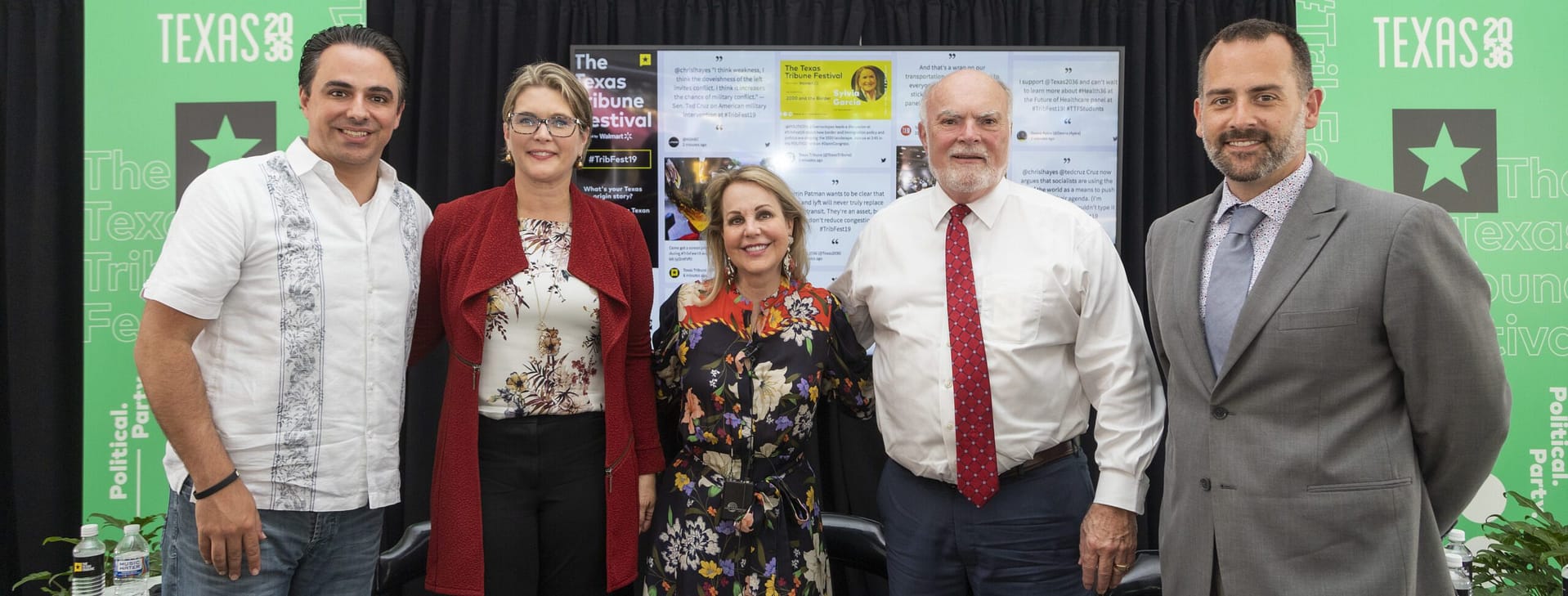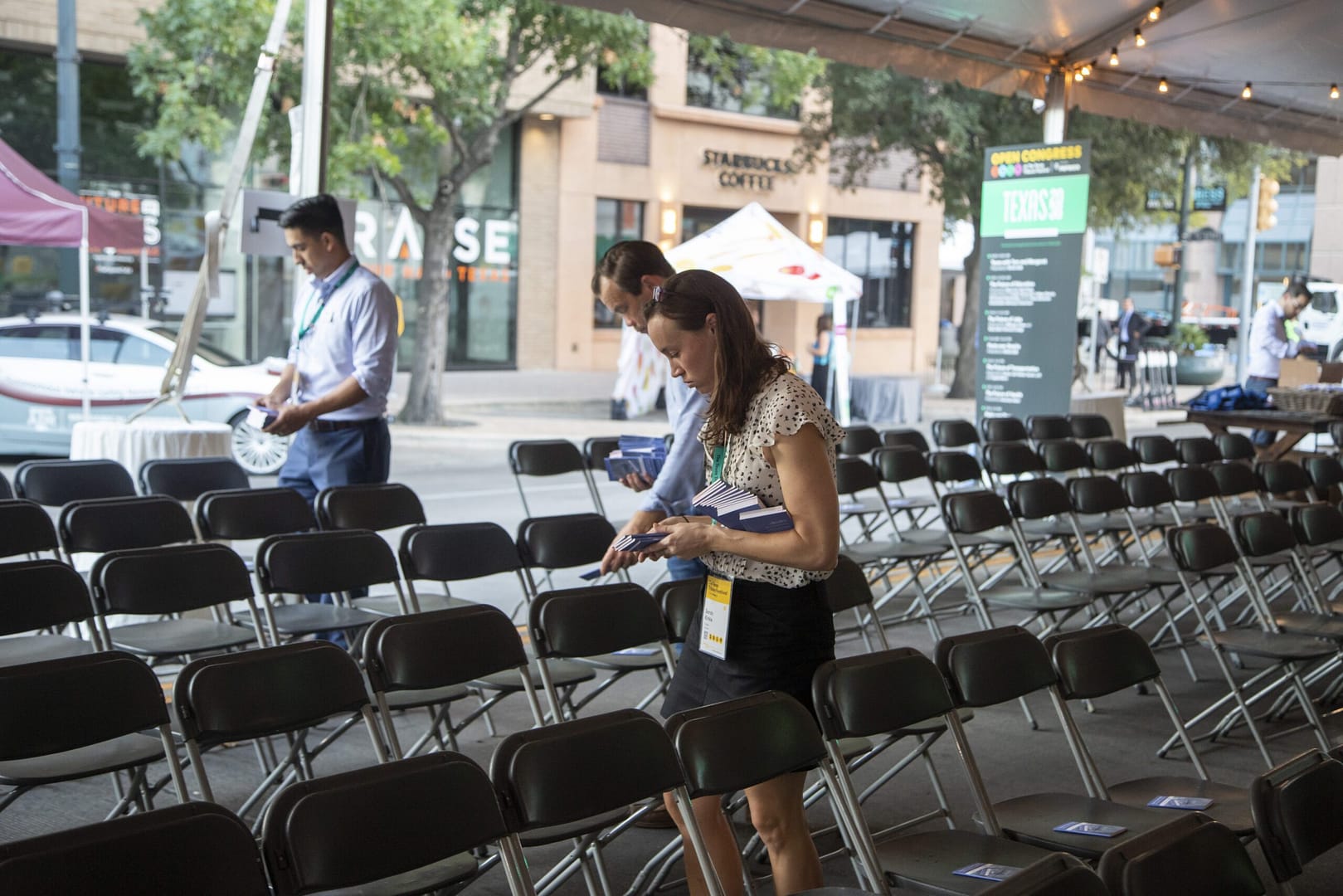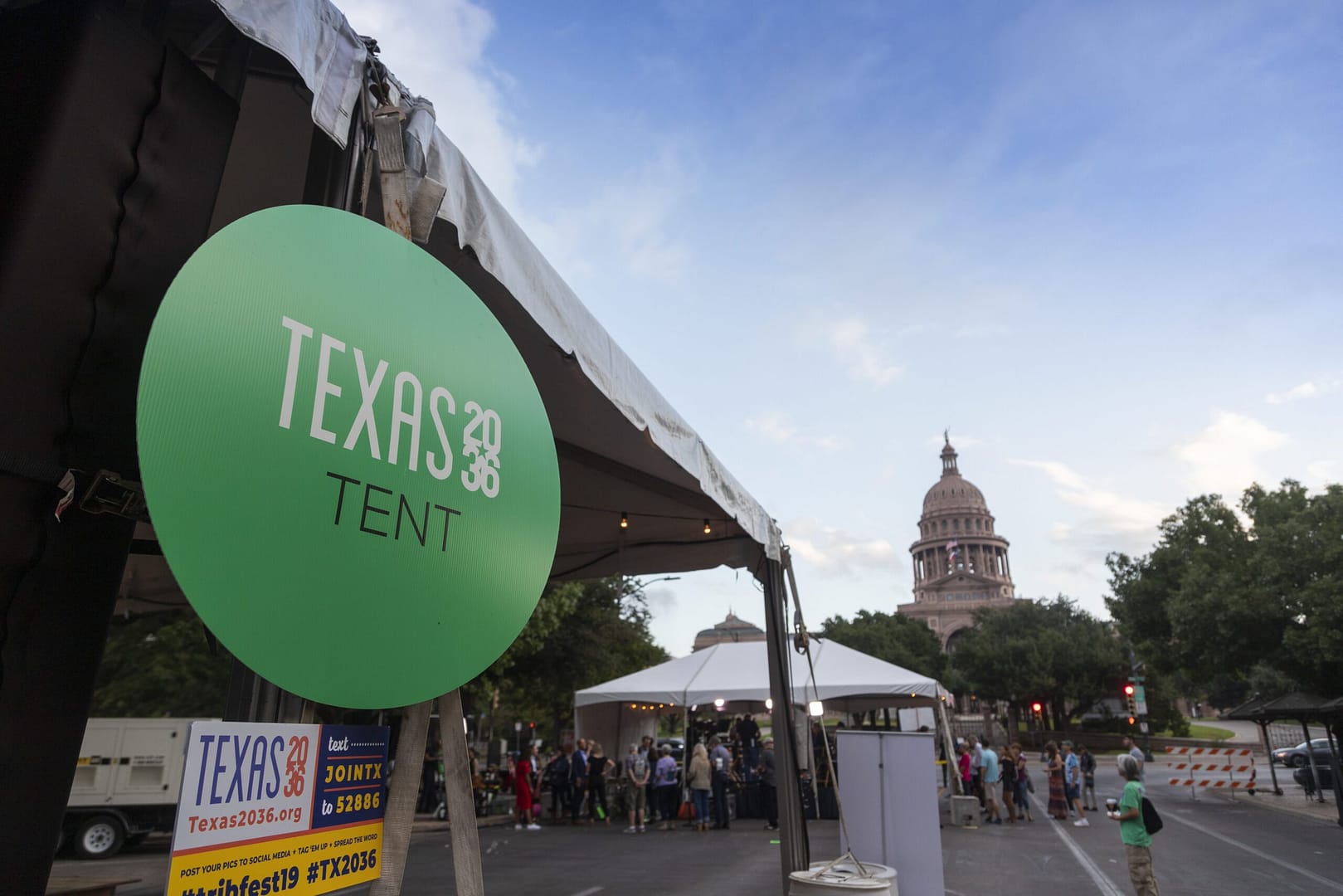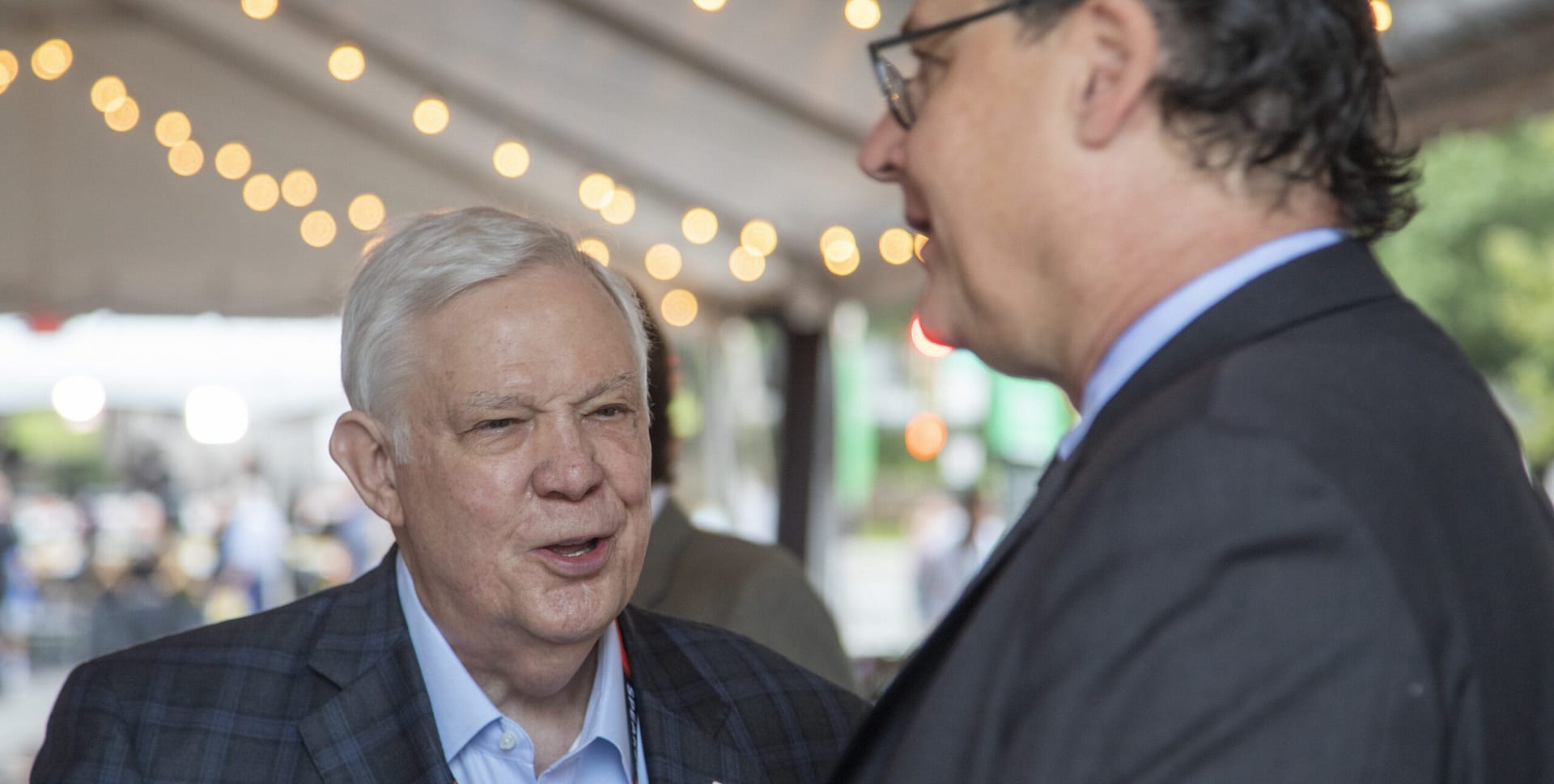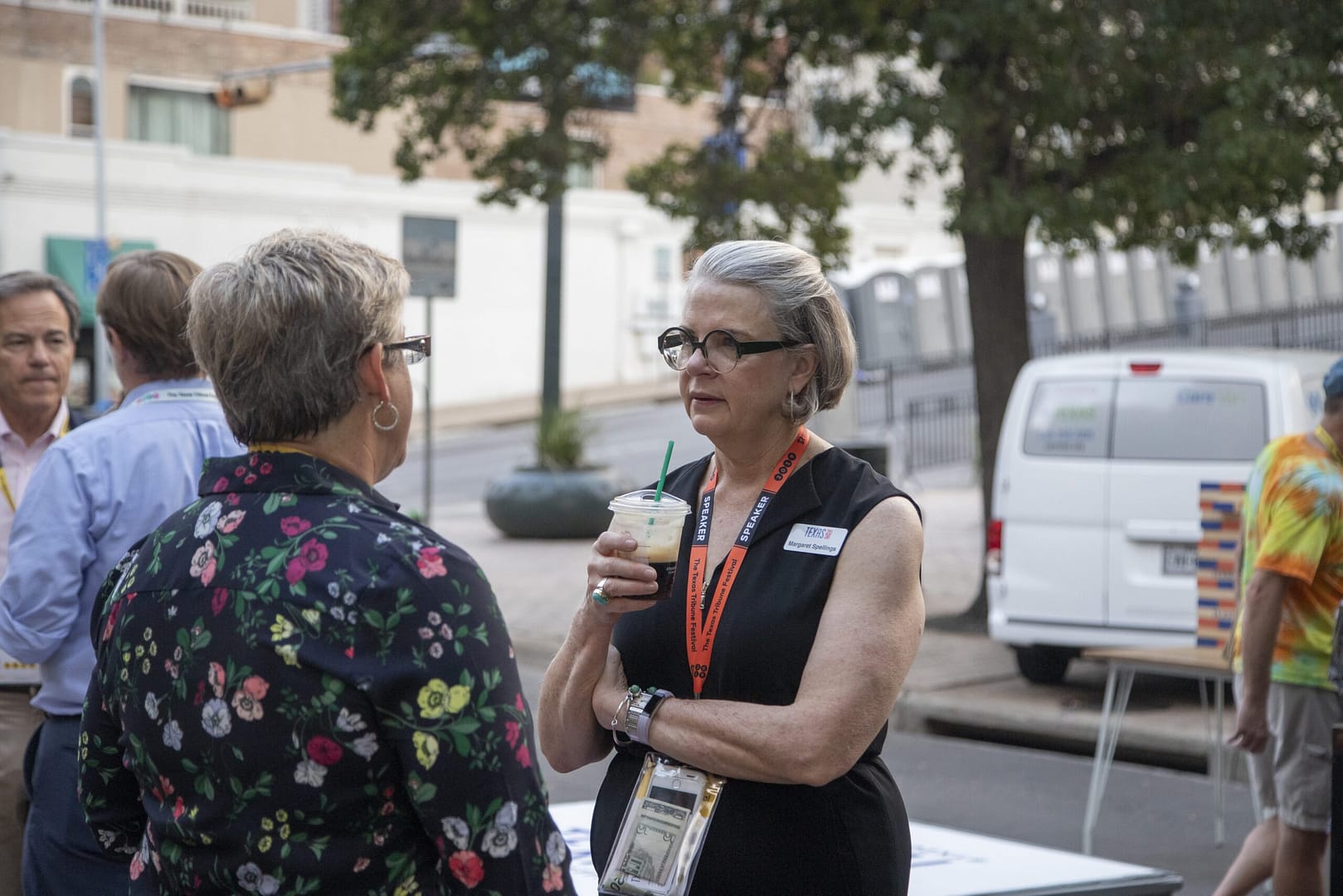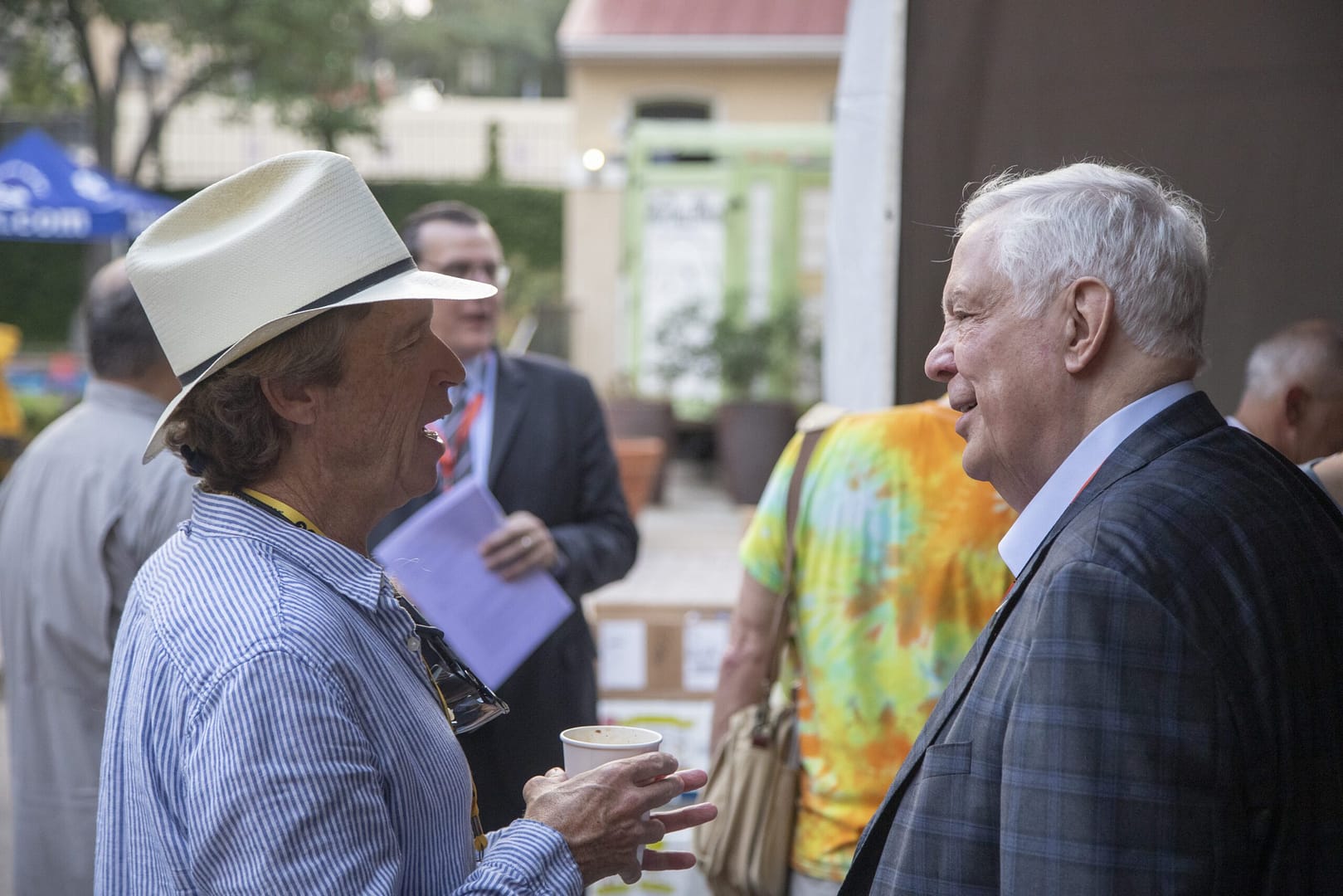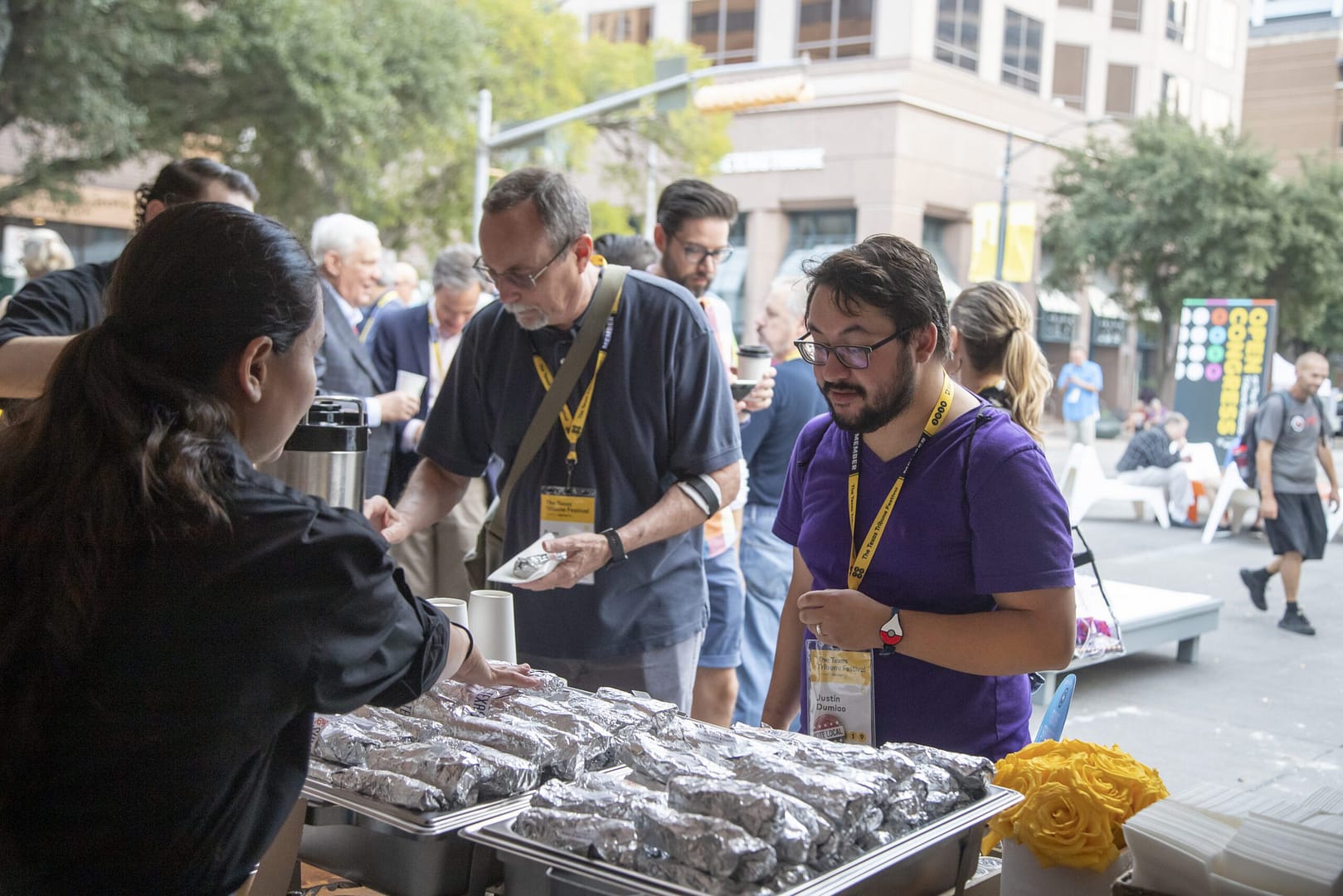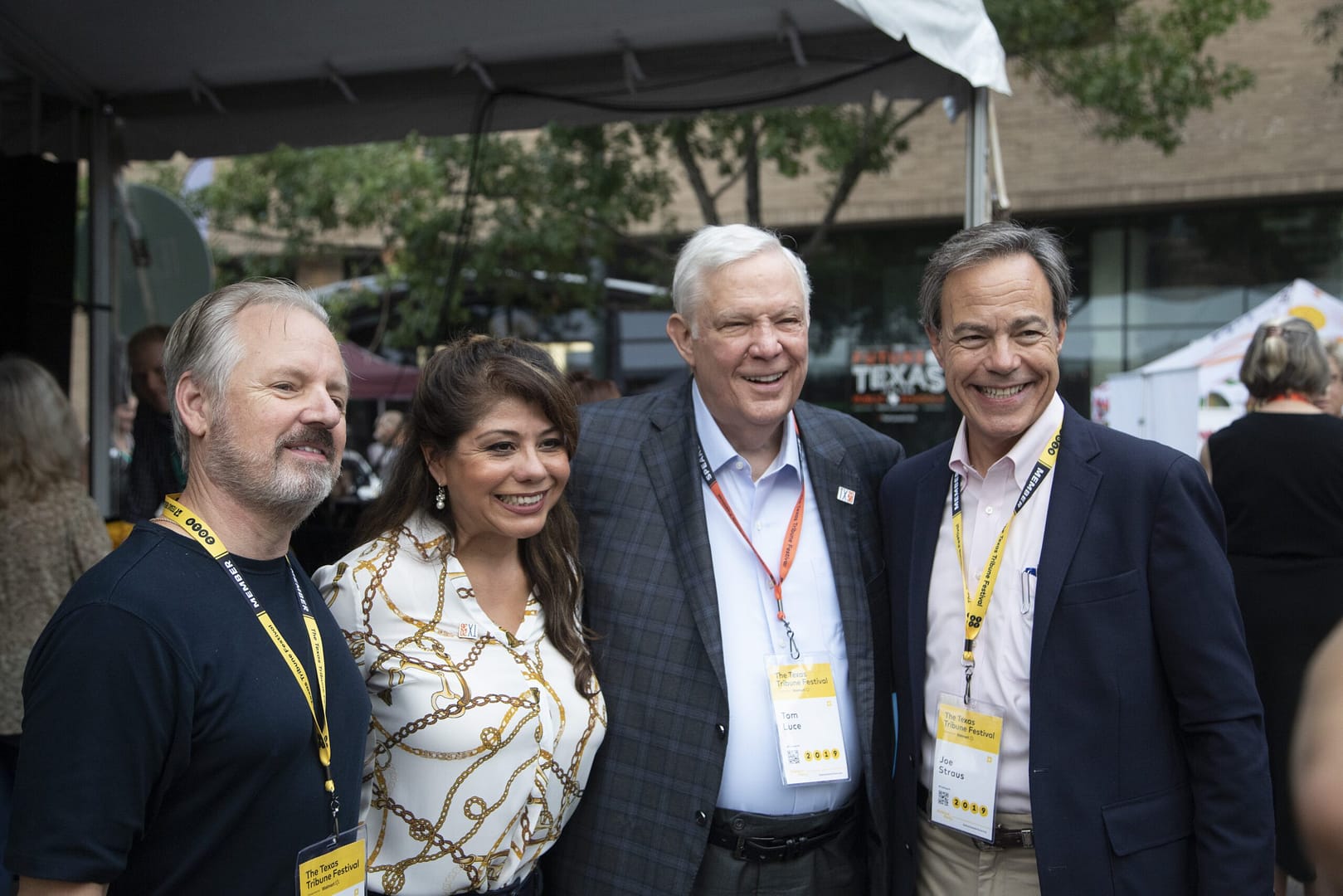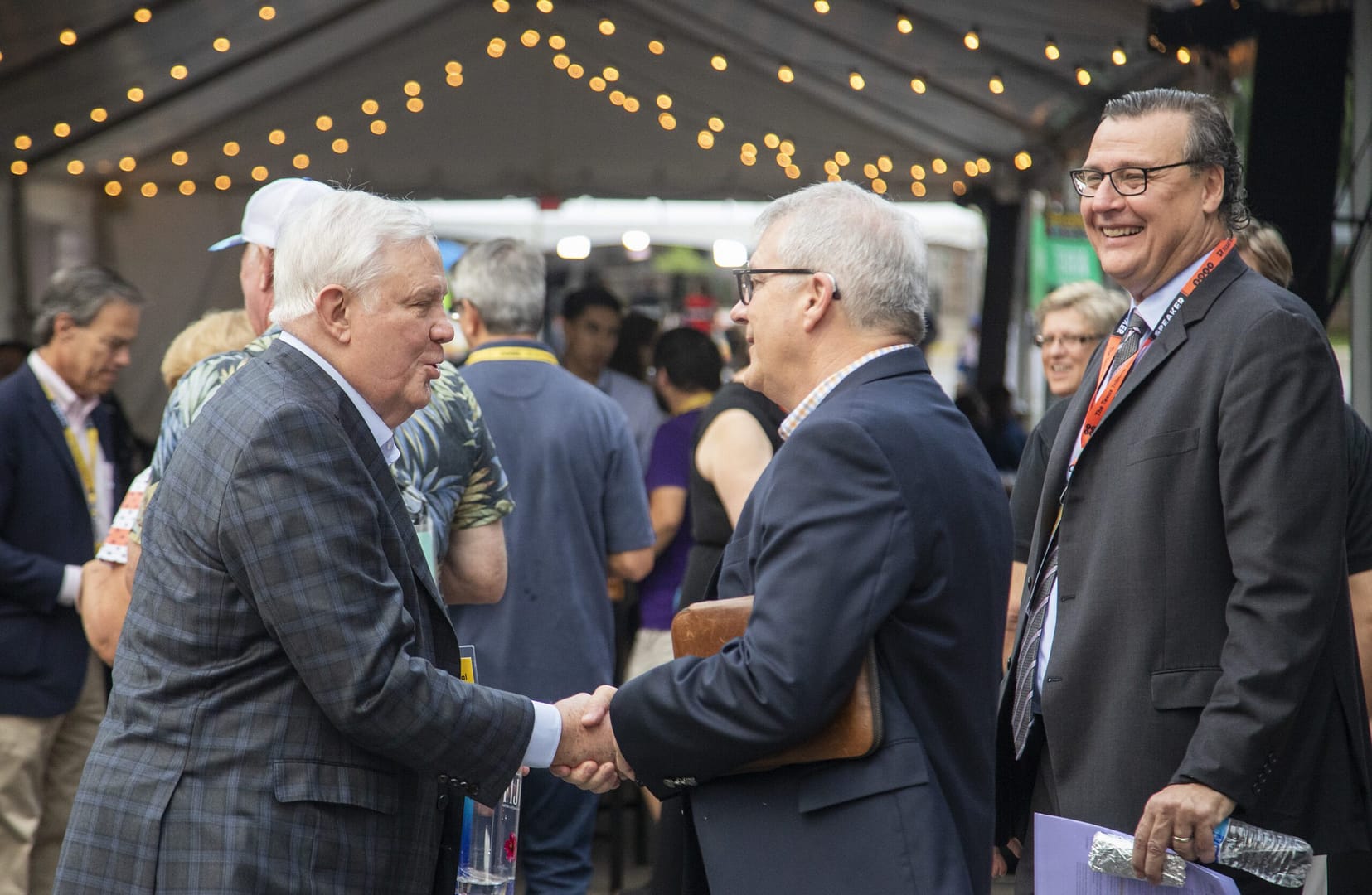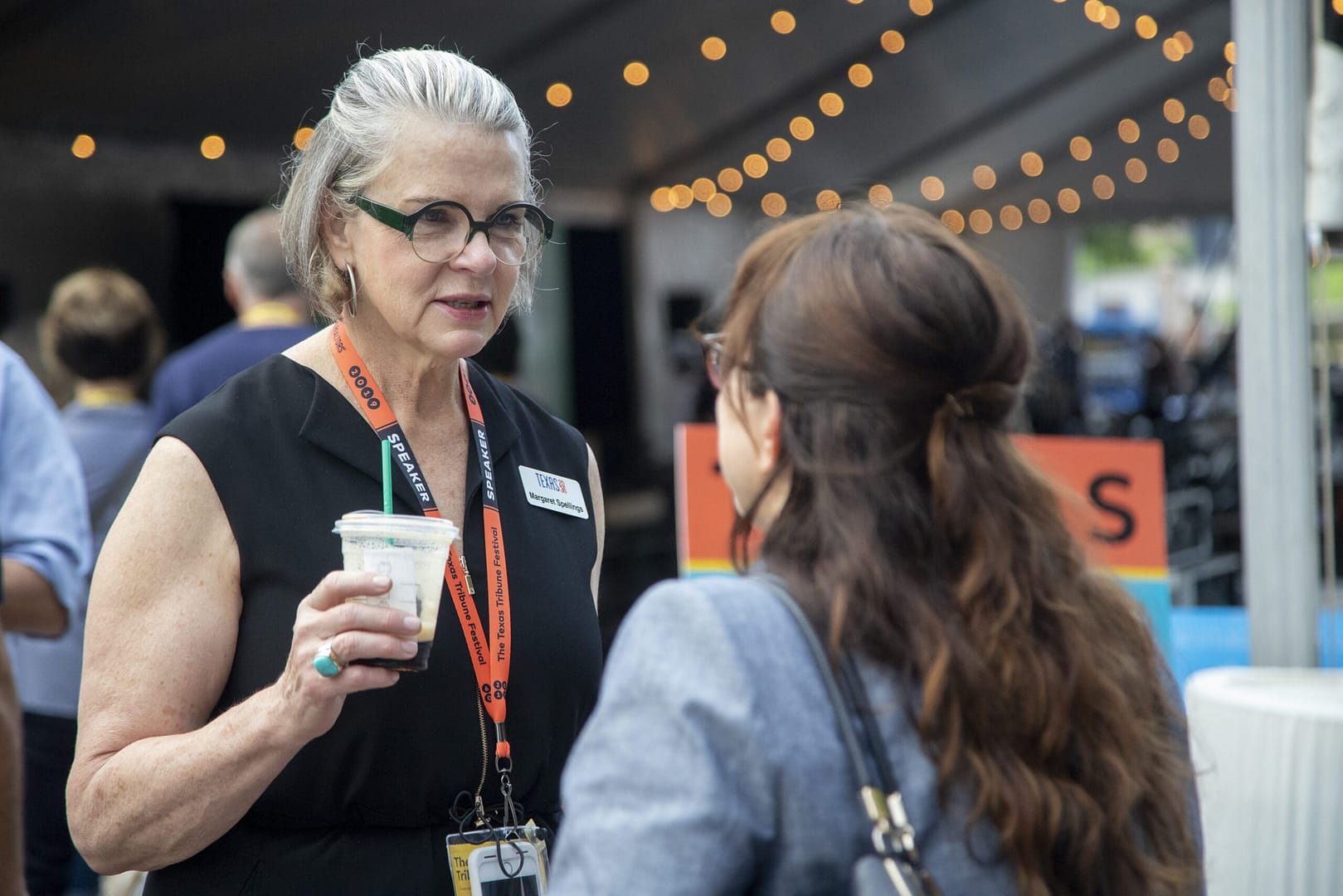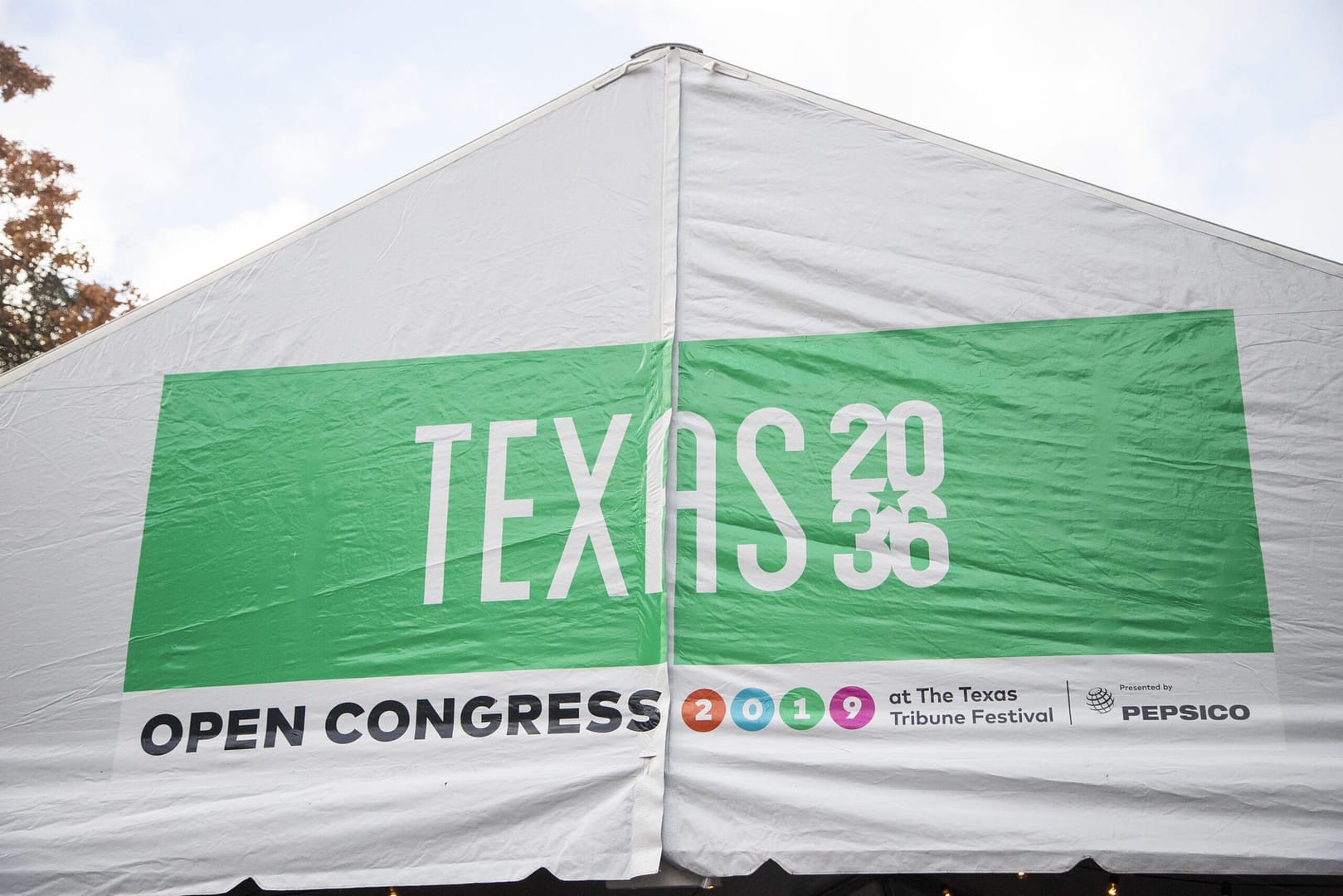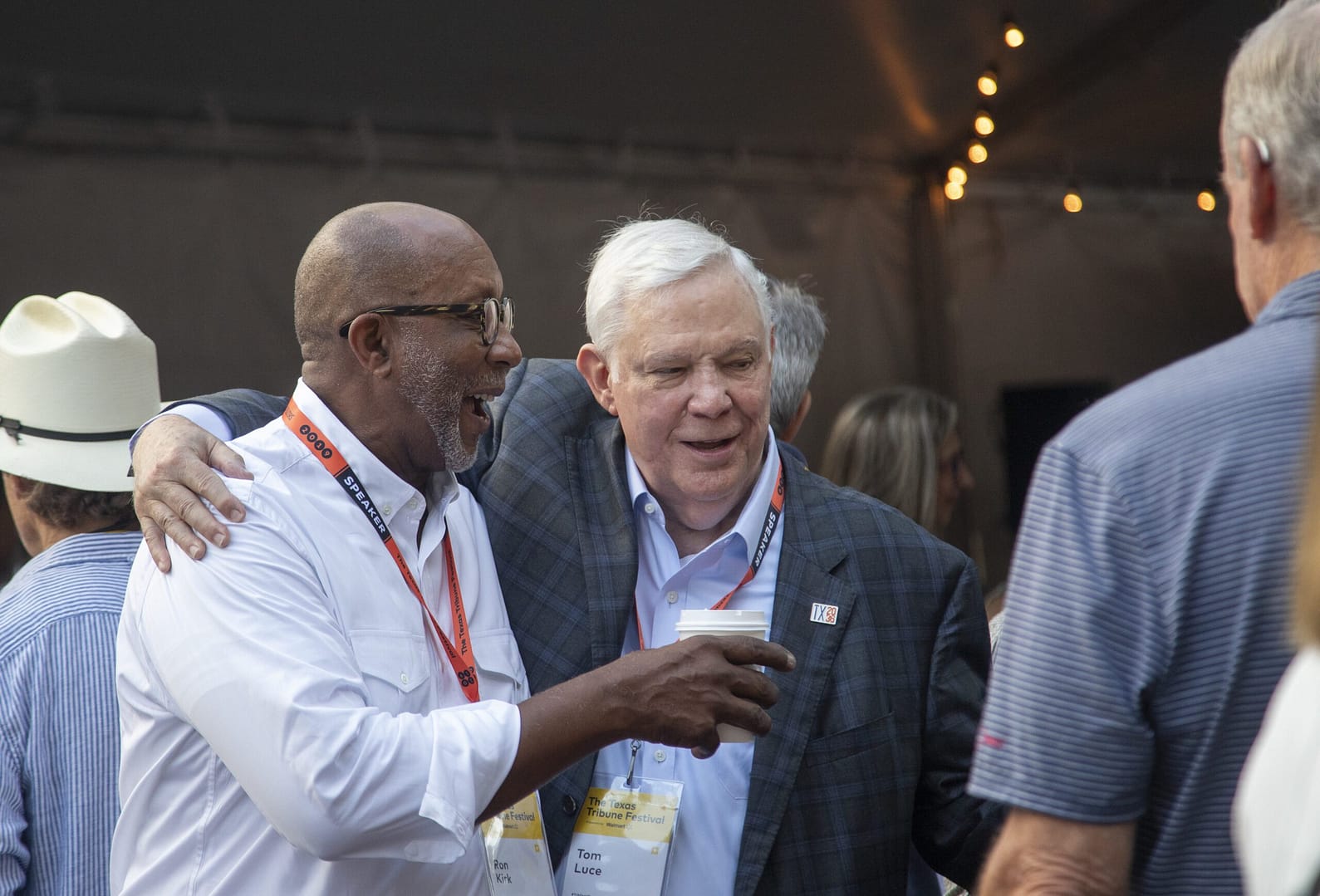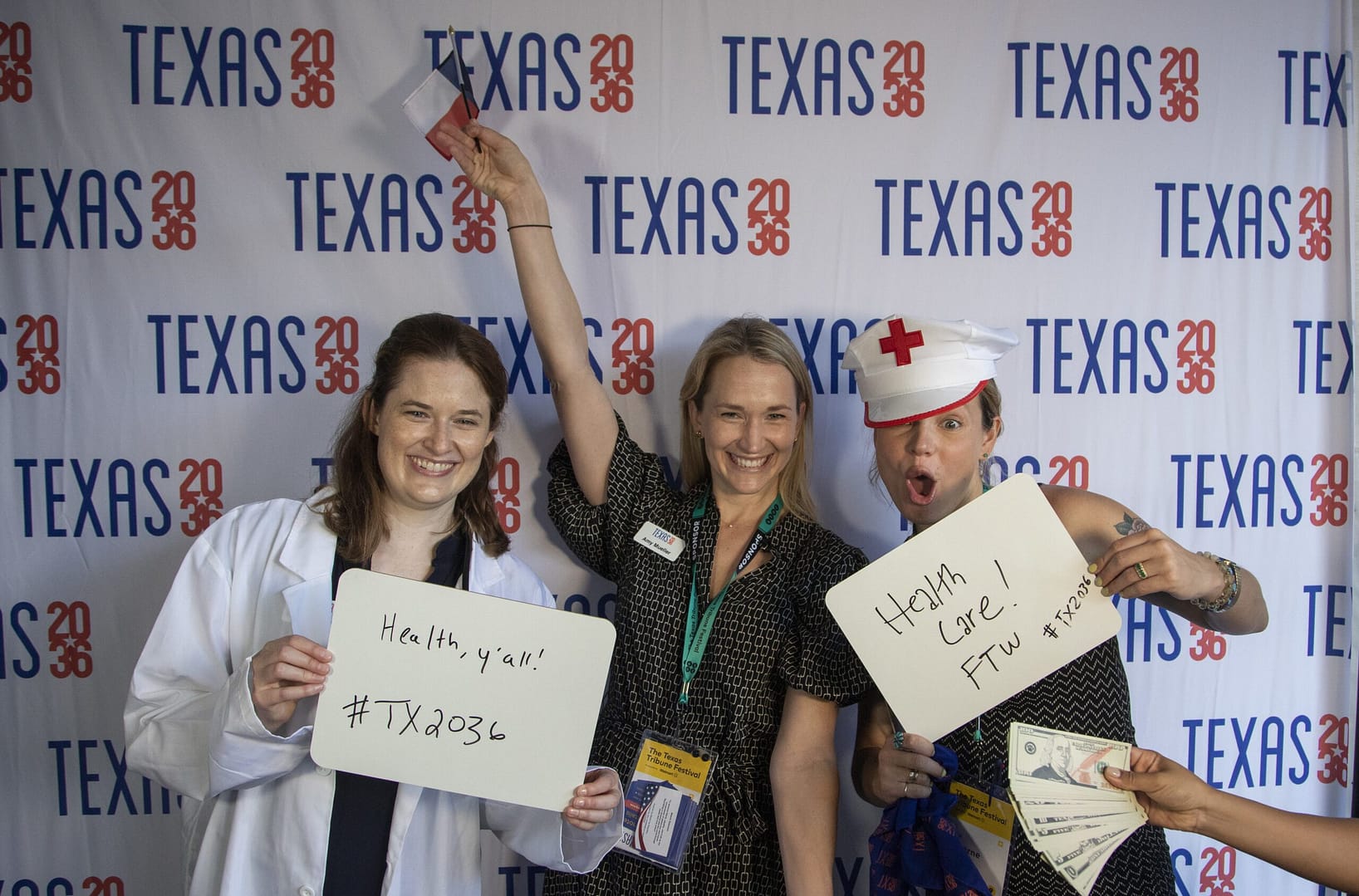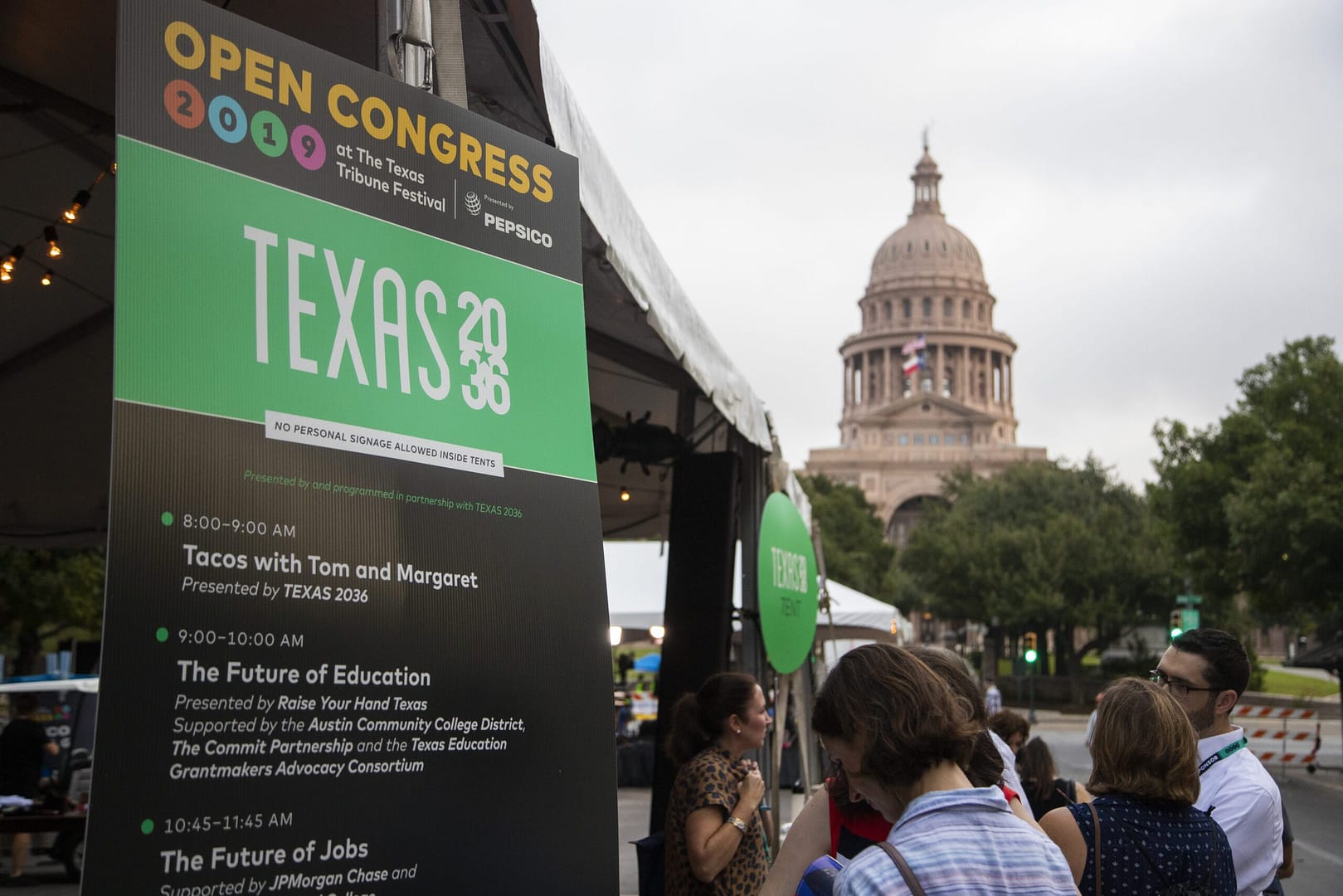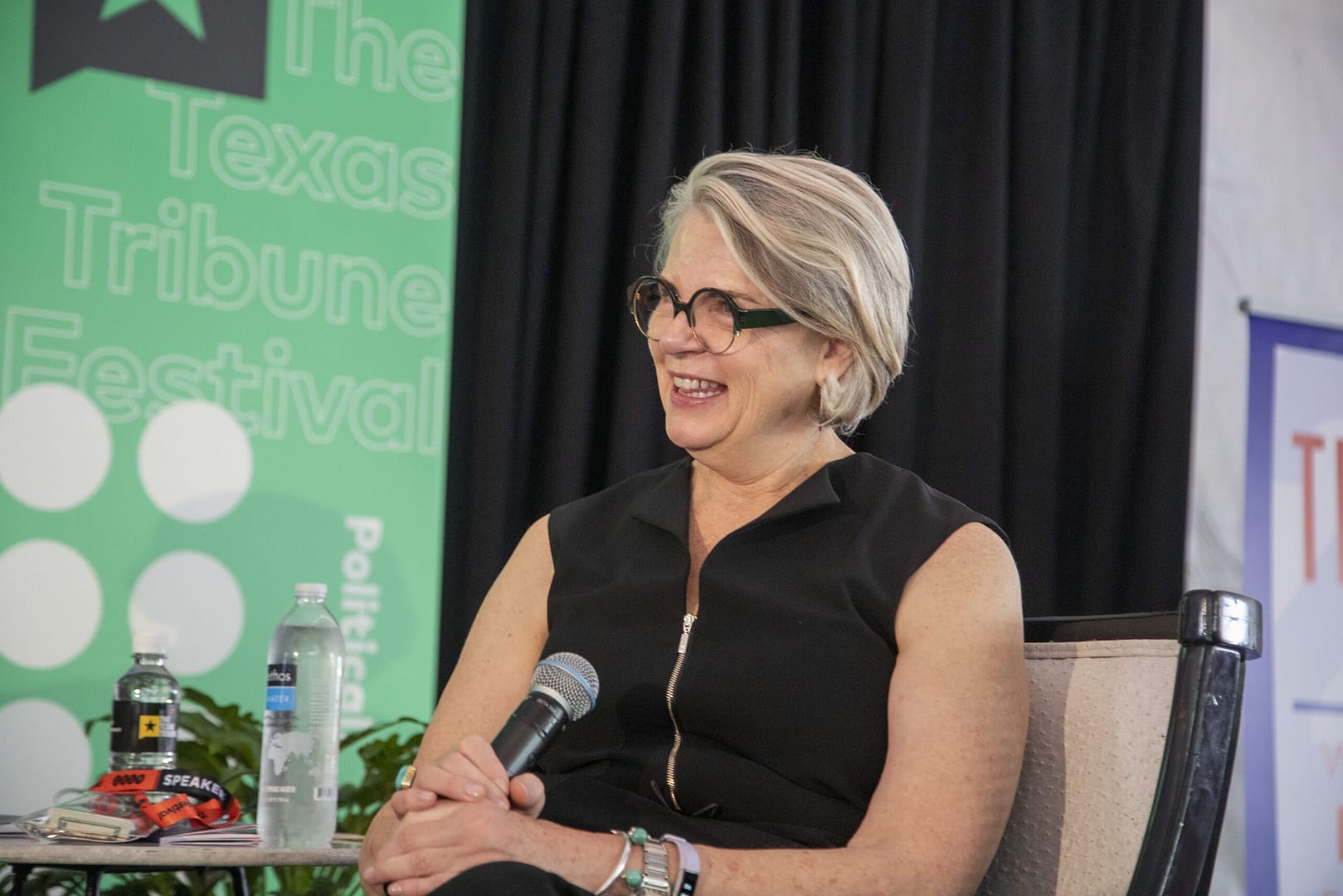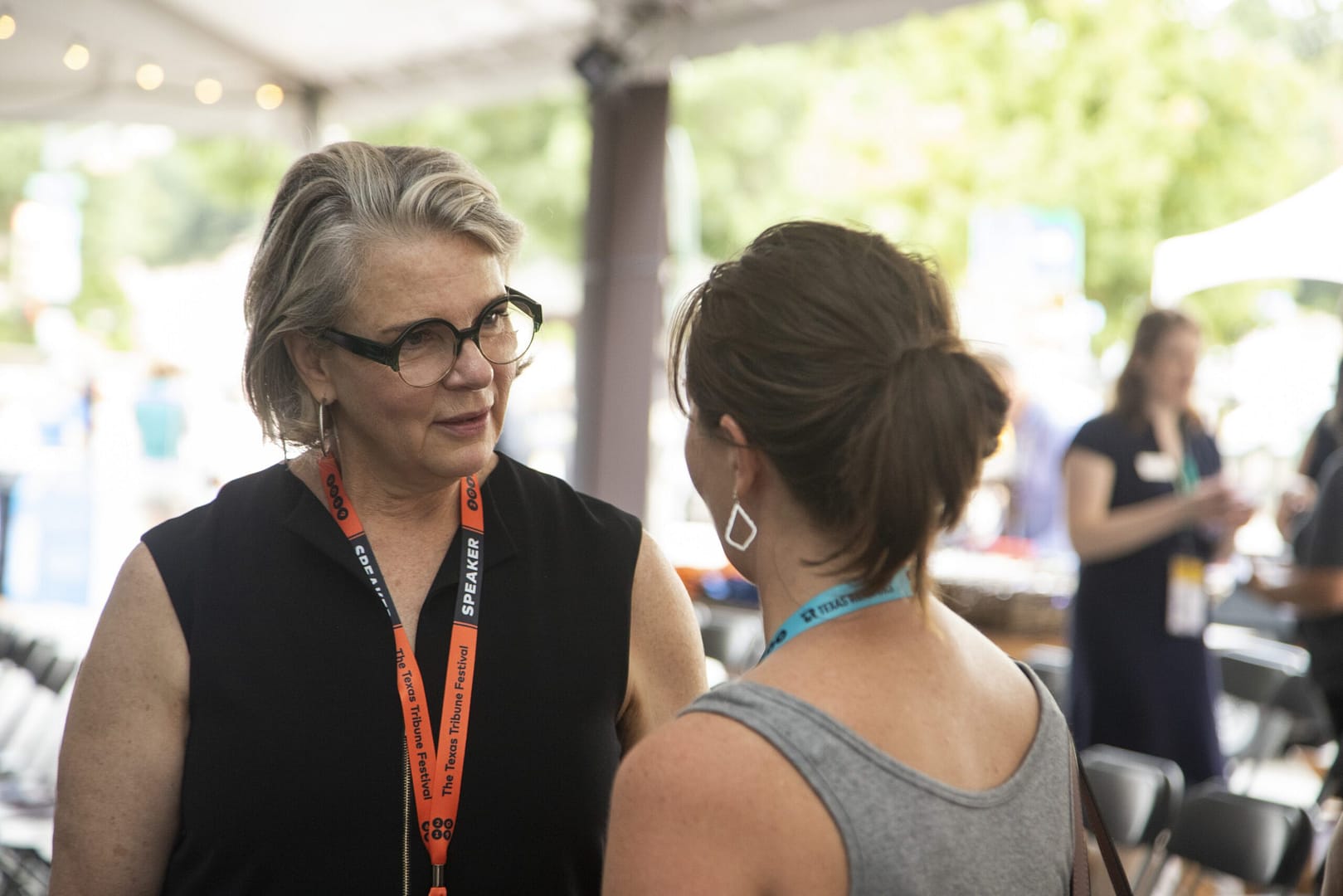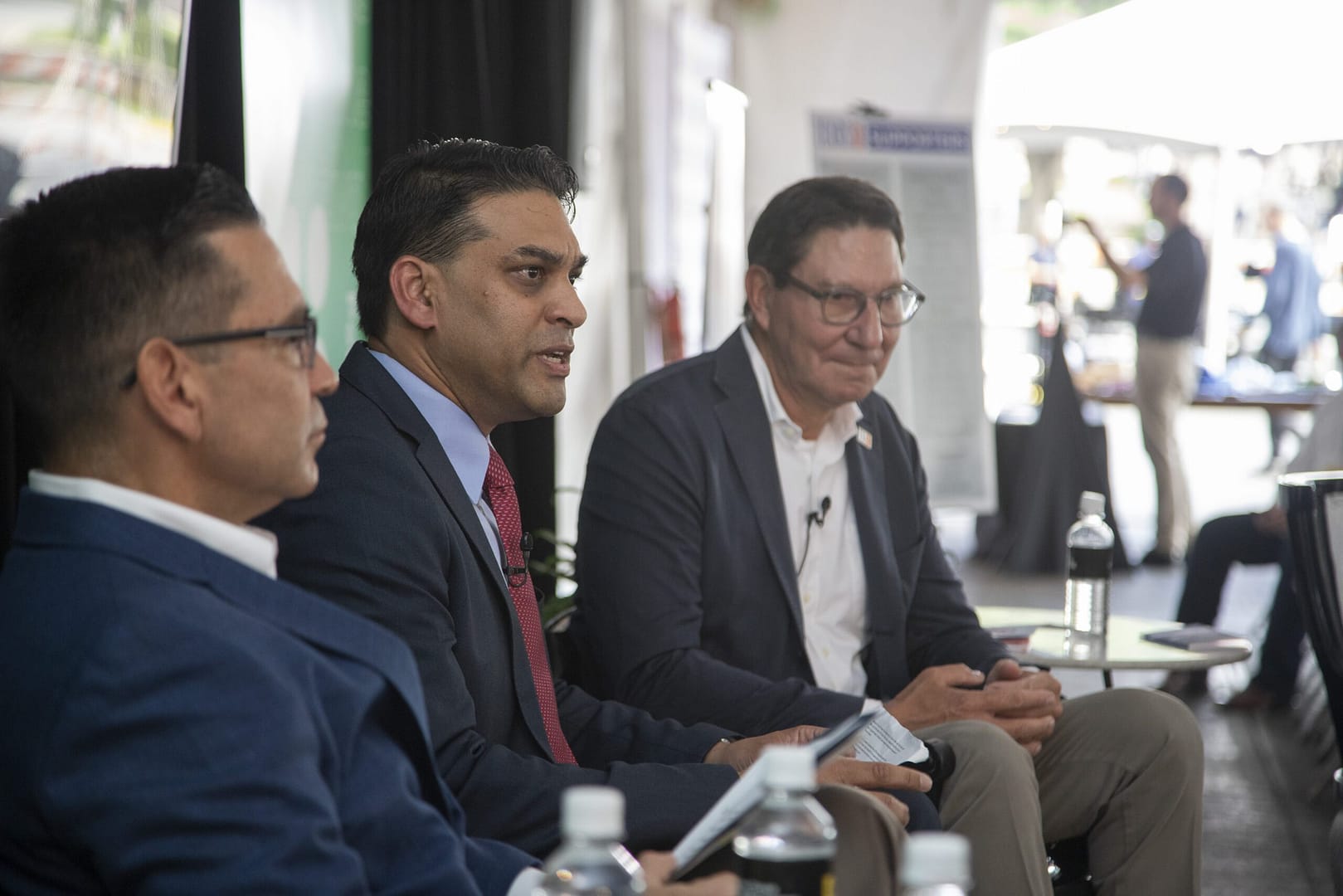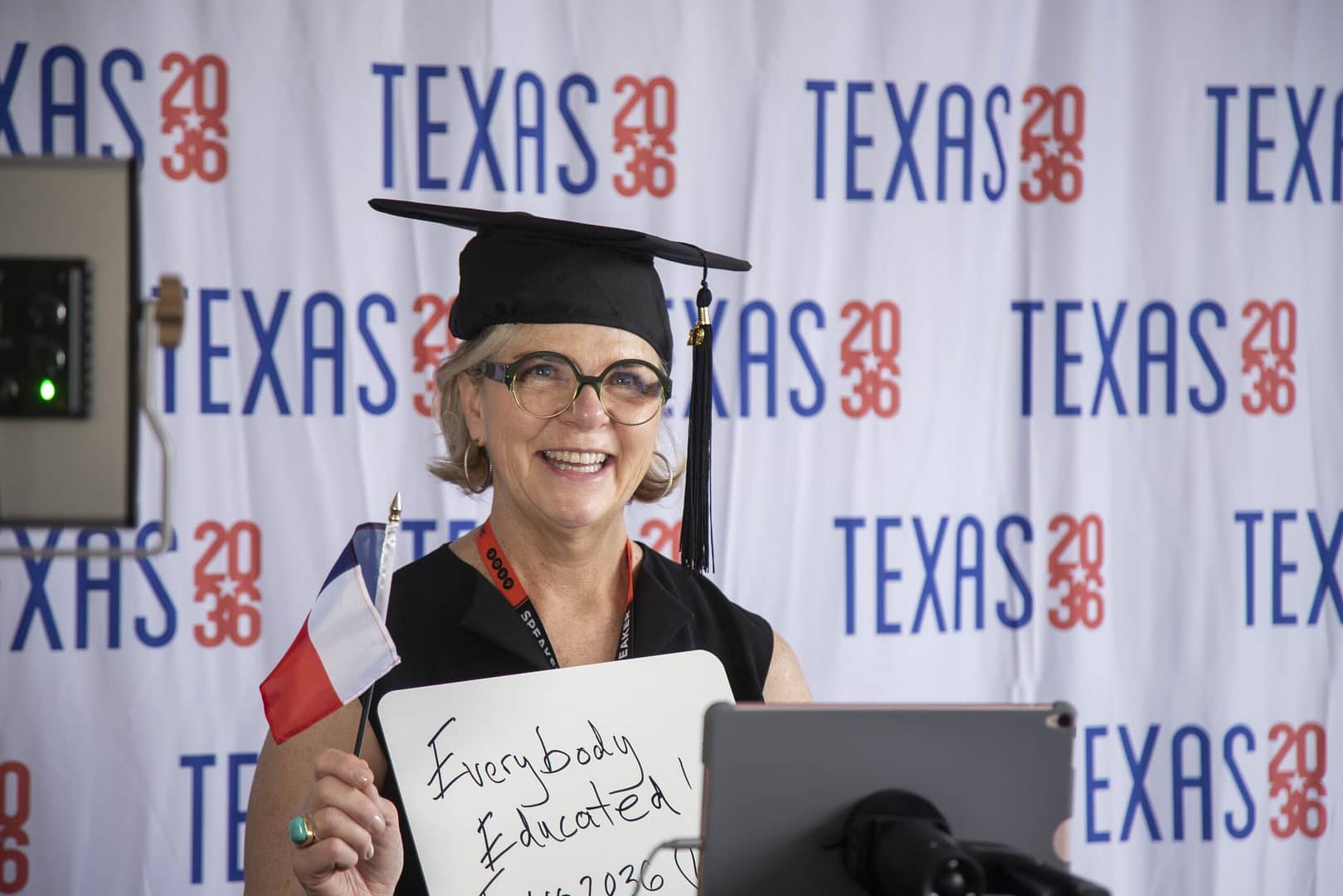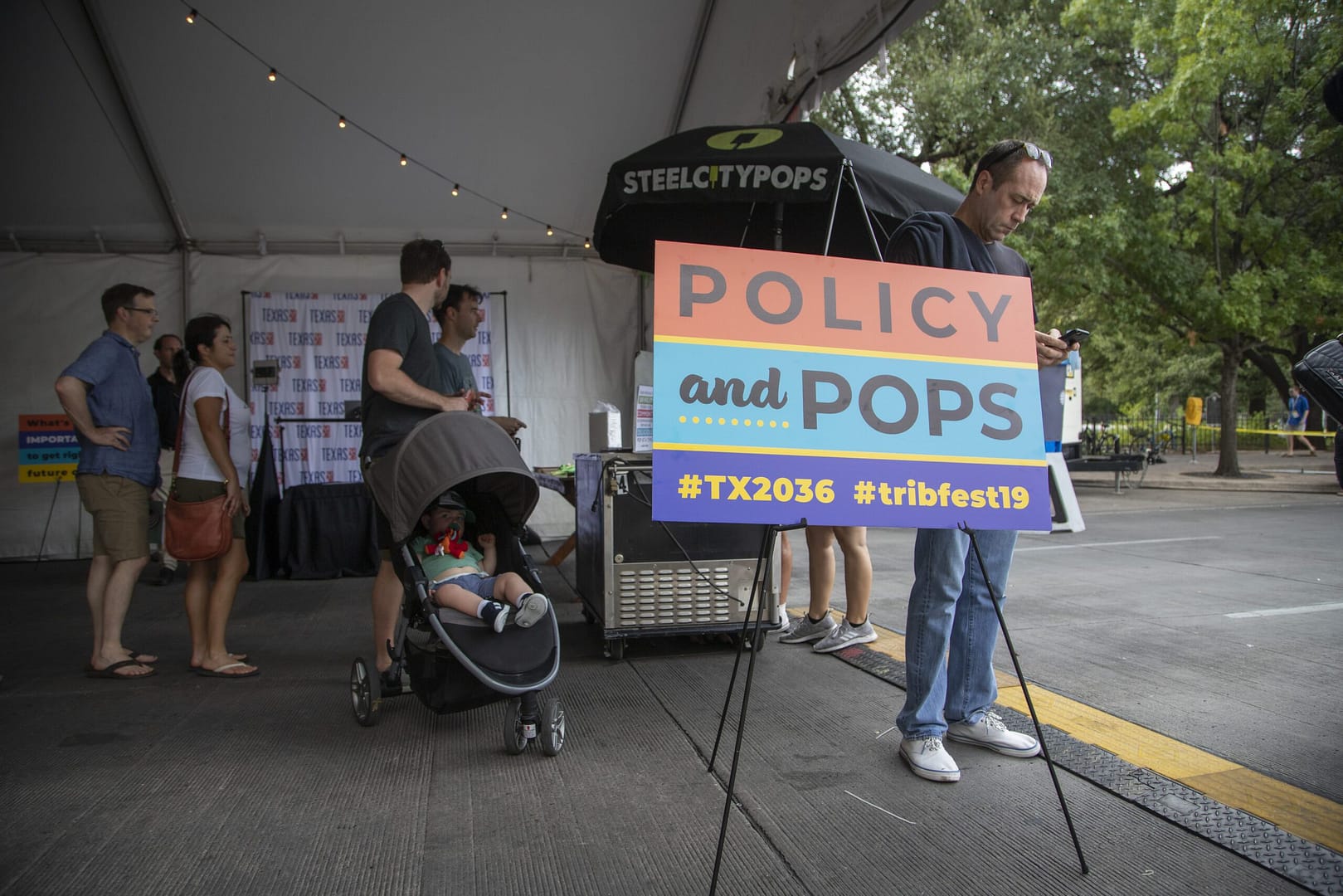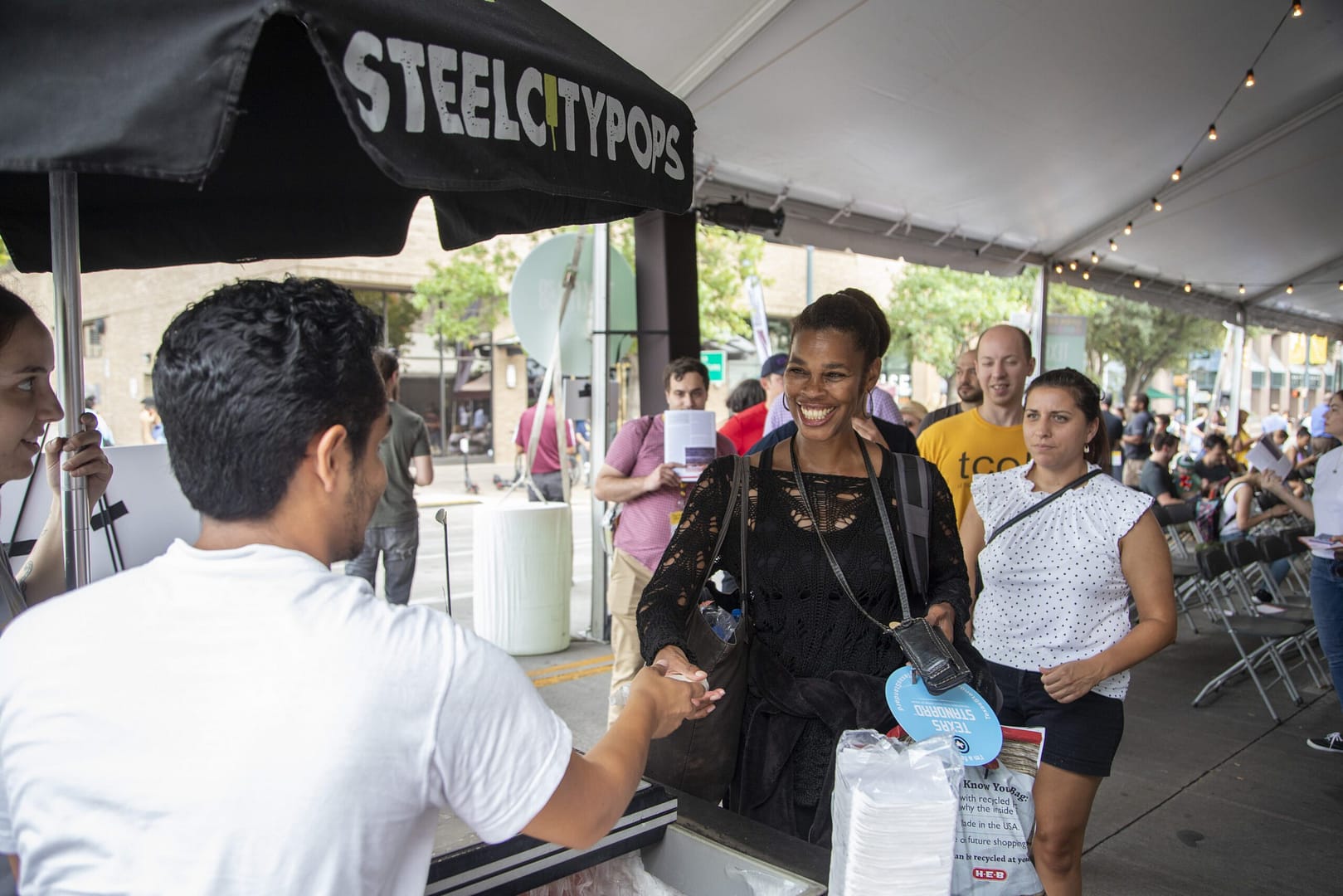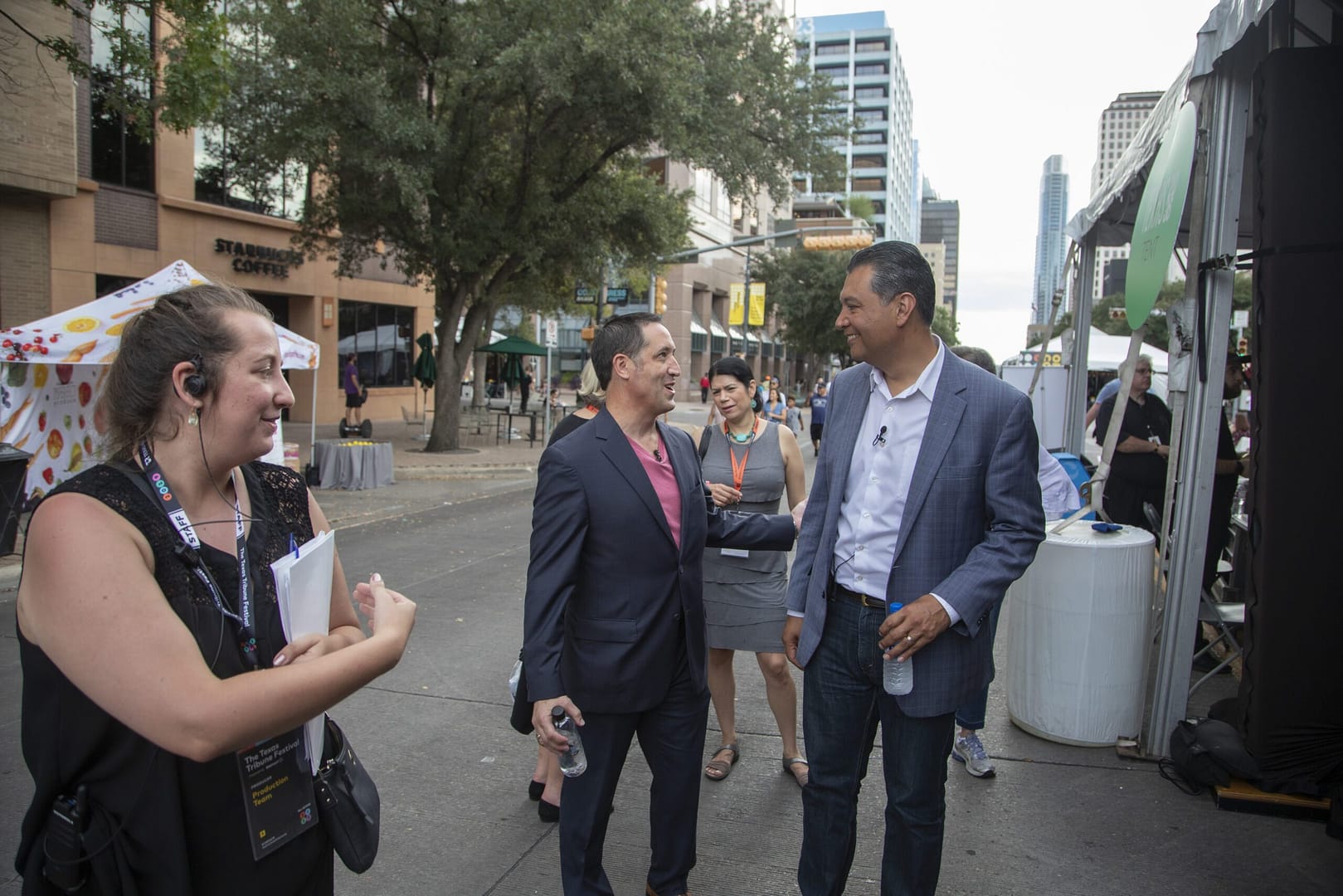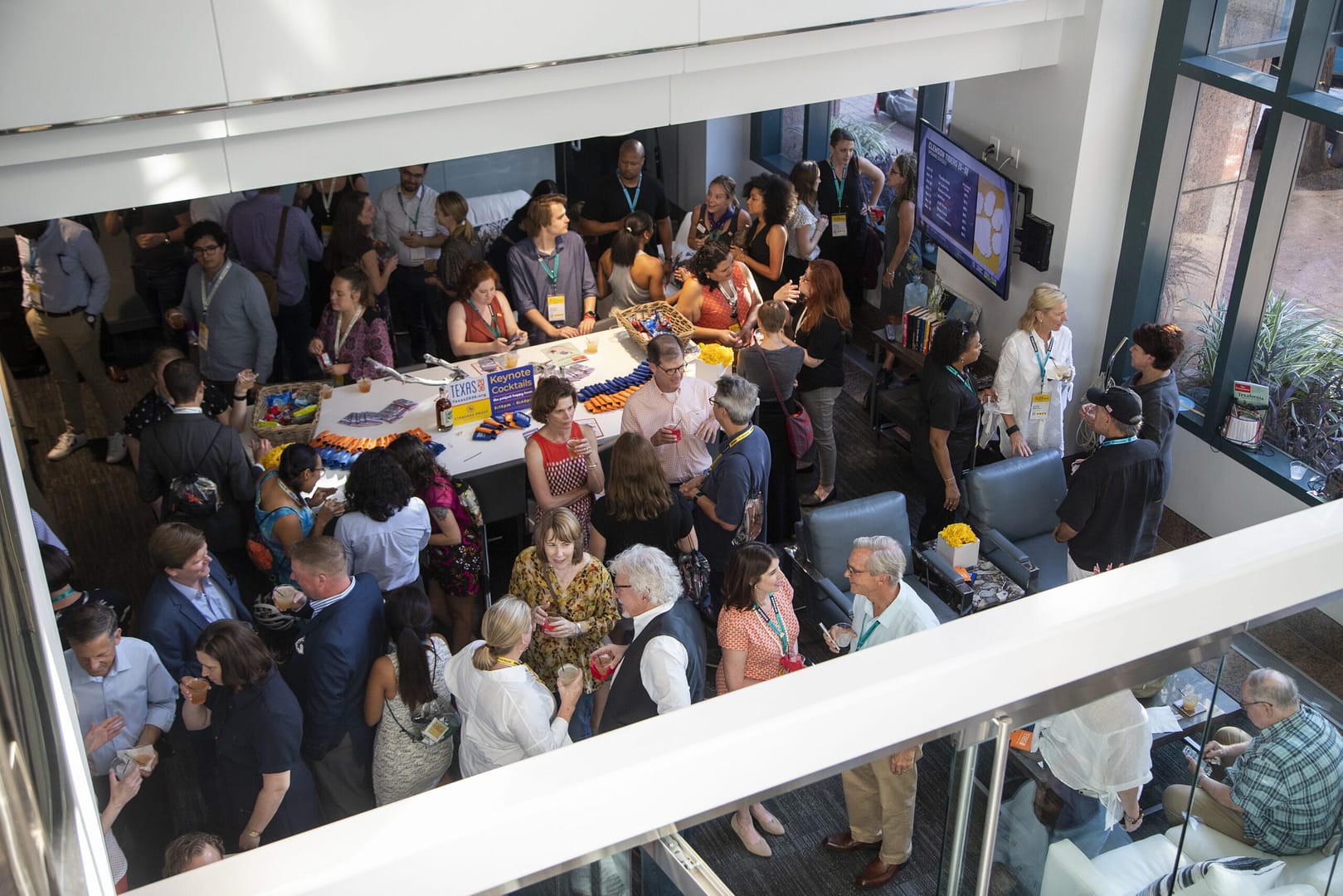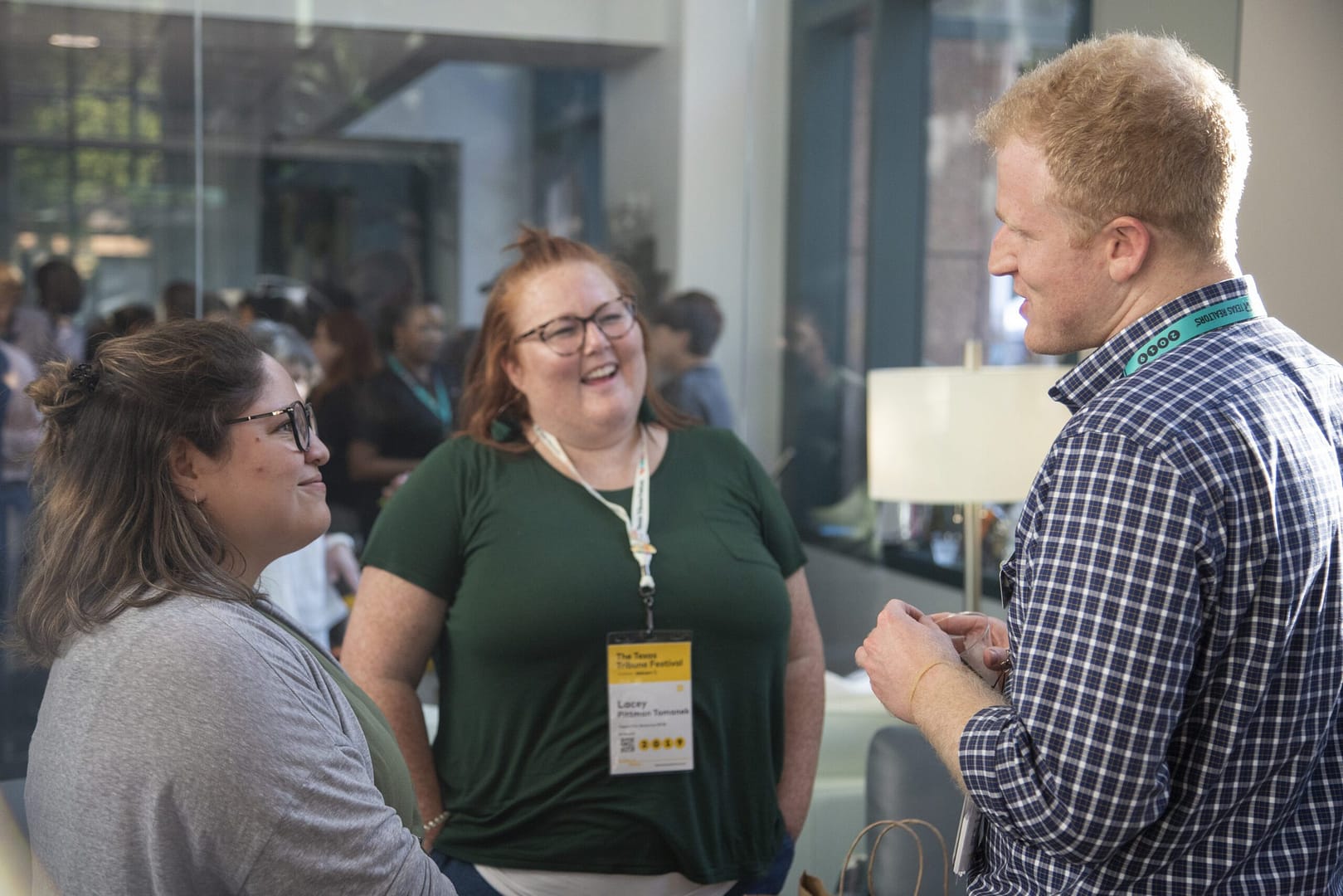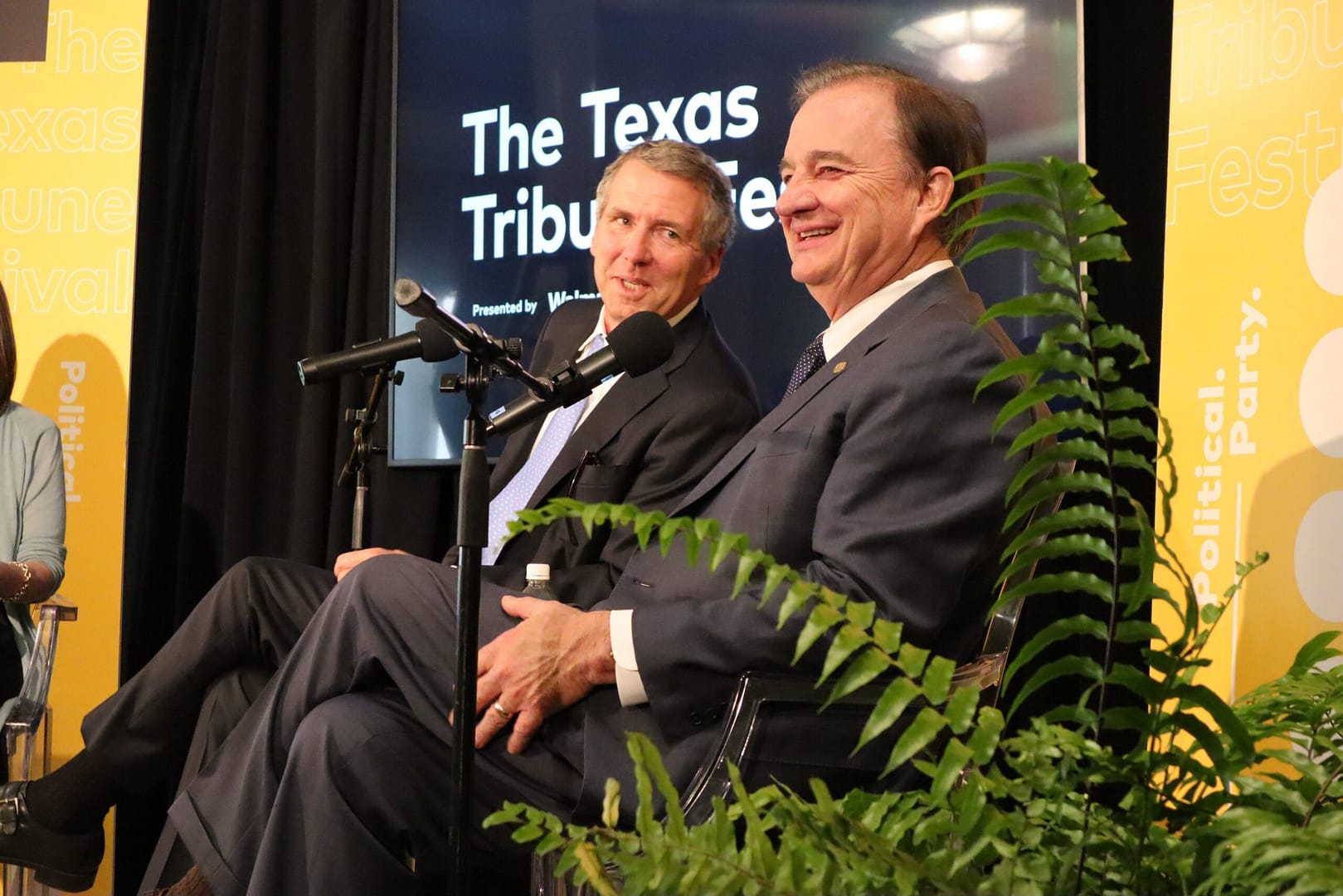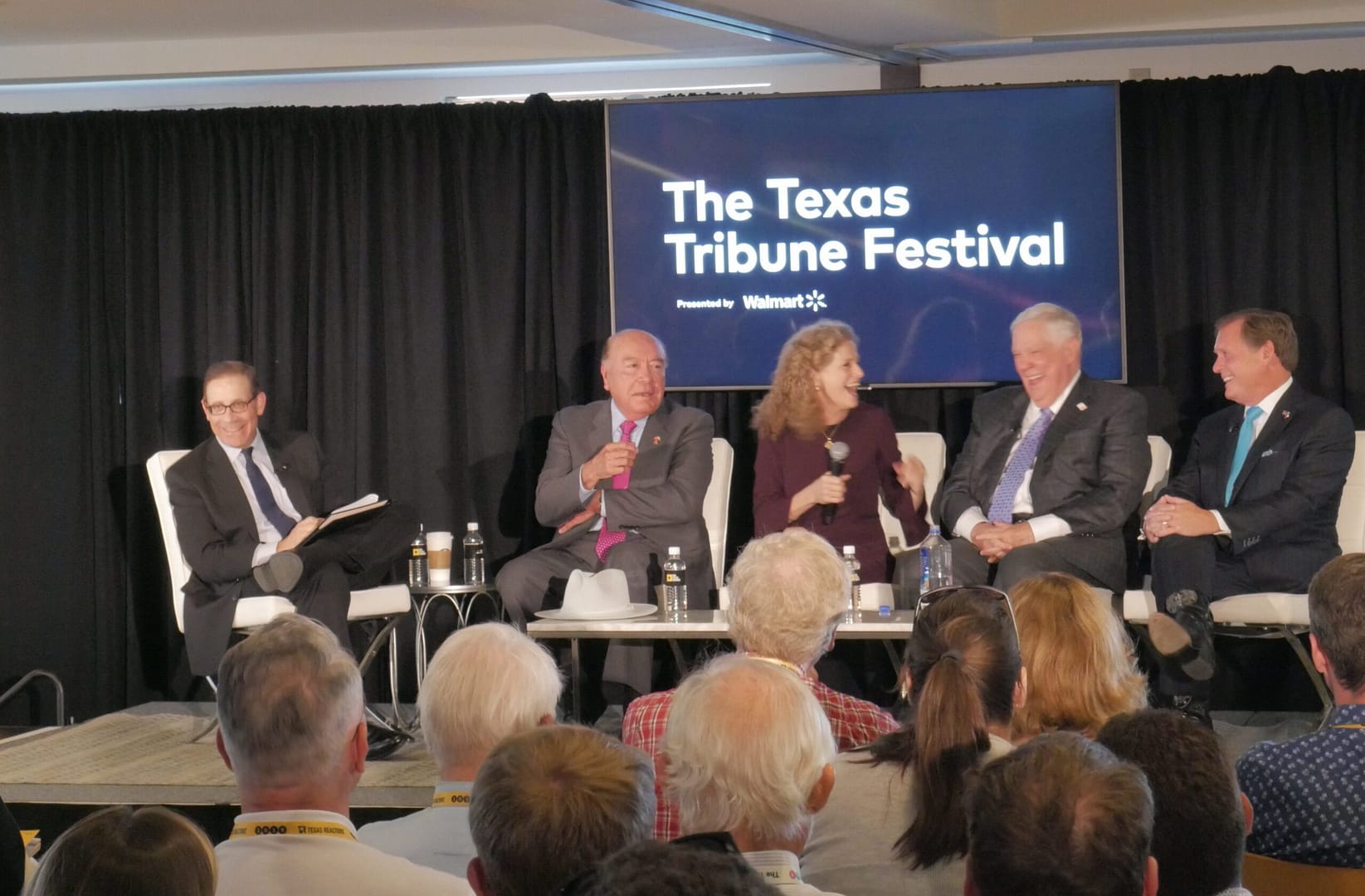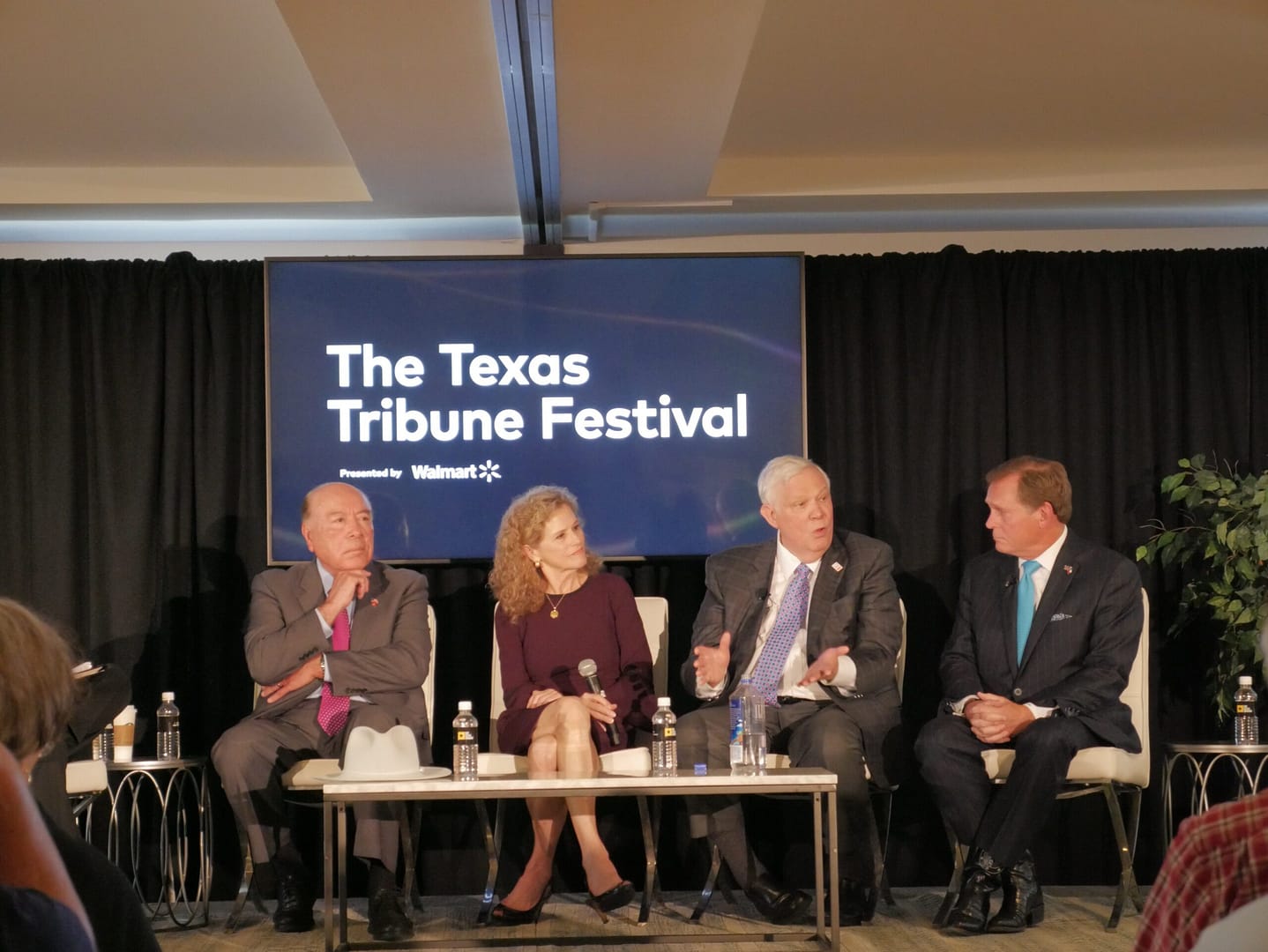One of Friday’s premier panels focused on Texas’ future and the steps we need to take to extend the state’s prosperity through its bicentennial in 2036 and beyond — so Texas 2036 founder Tom Luce was a natural fit. Texas Tribune CEO Evan Smith moderated the panel with state Sen. Chuy Hinojosa, Rep. Donna Howard and outgoing Rep. John Zerwas; Smith described Tom as the “godfather” of data-driven policy solutions in Texas.
On this panel, Tom discussed many of the urgent statistics that led him to create Texas 2036:
- Our population will grow by 10 million in less than two decades.
- In Texas’ 21st century economy, 77 percent of jobs will require a college degree or certificate, but just 23 percent of Texas 8th graders are meeting that qualification within six years of high school graduation.
- Texas ranks 49th among the 50 states in overall health system performance, and last in accessibility and affordability.
“That’s a reality we have to talk about,” Tom said. He also stressed the importance of building an audience and constituency for future-focused, data-driven solutions: “We need to present a big vision for people to buy into.”





